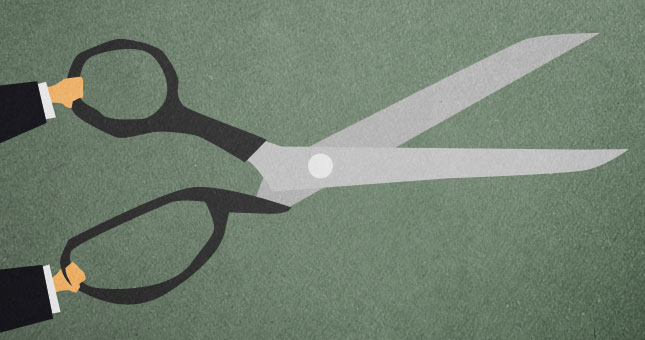
Honest, paywall-free news is rare. Please support our boldly independent journalism with a donation of any size.
The little town of Marks, Mississippi, had a moment in the spotlight when Martin Luther King Jr. launched the Poor People’s Campaign from there in 1968. The story of what happened next tells us a lot about the stubbornness of poverty in America — and how the federal government’s anti-poverty programs get results. It also shows why Americans must refuse to accept the Trump administration’s proposed budget, which eliminates many of these programs.
After the Poor People’s Campaign was over, poverty hung on for decades in Marks, where investment dollars are almost nonexistent. Life went on without things most Americans take for granted. For example, despite being surrounded by farmland, Marks residents had to drive 20 miles to the nearest Wal-Mart just to get fresh vegetables. But Shreveport Federal Credit Union changed all that by organizing local farmers into a worker-owned cooperative, renovating a building, and creating what became the Delta Muletrain Farmers Market. The place was off-season but still bustling when I visited in November 2015.
This work was done by a tiny credit union based in Shreveport, Louisiana, with crucial help from the federal government. Over the past 10 years, the credit union has received $4.5 million from a little-known program that supports Community Development Financial Institutions. The idea is to reward lenders who do the not-very-profitable work of investing in low-income America.
The Trump budget proposes not just cutting the Community Development Financial Institutions Fund, but eliminating it entirely.
Today, there are 1,075 CDFIs across the United States, concentrated in the places where Americans are struggling, places where a campaigning Trump made promises in exchange for votes. “The forgotten men and women of our country will be forgotten no longer,” he said in his inauguration speech.
But on Wednesday, the administration took a different one. “There’s a lot of programs that simply cannot justify their existence, and that’s where we zeroed in,” budget director Mick Mulvaney said.
Other agencies listed for elimination include the Appalachian Regional Commission, begun in 1960, and the Delta Regional Authority, in 1990. These organizations aren’t the Corporation for Public Broadcasting or the National Endowment for the Arts, so they aren’t part of the national outrage on news shows and social media.
But they are tested and proven winners when it comes to the challenging task of bringing wealth to neglected corners of the United States. The Appalachian Regional Commission estimates that its programs have created or retained almost 24,000 jobs in that troubled region, while the Delta Regional Authority’s corresponding figure is 17,000 jobs. To maximize the efficiency with which they spend taxpayer dollars, both agencies focus on seeding investment, rather than making grants, to help private businesses get started. They also support democratic decision-making, by involving local residents in the investments they make.
When you put it all together, these and other cuts in the proposed budget represent an abandonment of America’s hardest-hit areas. They would vaporize the government’s most successful work to date in supporting an economy that works for everybody.
Thomas Hanna, who researches economic development at the nonprofit Democracy Collaborative, is deeply concerned. He anticipates that the Trump administration, if it’s successful in cutting these agencies, will move to replace them with programs that benefit private developers. Those developers would then build infrastructure projects for profit, like new highways with expensive tolls. “For regions such as Appalachia and the Delta, which are already suffering economically, such an infrastructure plan is likely to significantly add to the people’s woes, rather than alleviate them.”
Some predict these cuts are unlikely to get past Congress. Something similar happened in 2013, when President Barack Obama tried to privatize the Tennessee Valley Authority, a federal agency that provides affordable electricity and other resources to a broad swath of the South. Republican legislators from the area fought the proposal tooth and nail, and saved the agency.
Today, the ball is back in representatives’ court again. If we’re lucky, elected officials whose constituents benefit from these programs will fight for them this time, too. The forgotten men and women of our country are depending on them.
***
Here are the 19 agencies that Trump wants to eliminate:
The African Development Foundation
The Appalachian Regional Commission
The Chemical Safety Board
The Corporation for National and Community Service
The Corporation for Public Broadcasting
The Delta Regional Authority
The Denali Commission
The Institute of Museum and Library Services
The Inter-American Foundation
The US Trade and Development Agency
The Legal Services Corporation
The National Endowment for the Arts
The National Endowment for the Humanities
The Neighborhood Reinvestment Corporation
The Northern Border Regional Commission
The Overseas Private Investment Corporation
The United States Institute of Peace
The United States Interagency Council on Homelessness
The Woodrow Wilson International Center for Scholars
A terrifying moment. We appeal for your support.
In the last weeks, we have witnessed an authoritarian assault on communities in Minnesota and across the nation.
The need for truthful, grassroots reporting is urgent at this cataclysmic historical moment. Yet, Trump-aligned billionaires and other allies have taken over many legacy media outlets — the culmination of a decades-long campaign to place control of the narrative into the hands of the political right.
We refuse to let Trump’s blatant propaganda machine go unchecked. Untethered to corporate ownership or advertisers, Truthout remains fearless in our reporting and our determination to use journalism as a tool for justice.
But we need your help just to fund our basic expenses. Over 80 percent of Truthout’s funding comes from small individual donations from our community of readers, and over a third of our total budget is supported by recurring monthly donors.
Truthout has launched a fundraiser to add 500 new monthly donors in the next 9 days. Whether you can make a small monthly donation or a larger one-time gift, Truthout only works with your support.